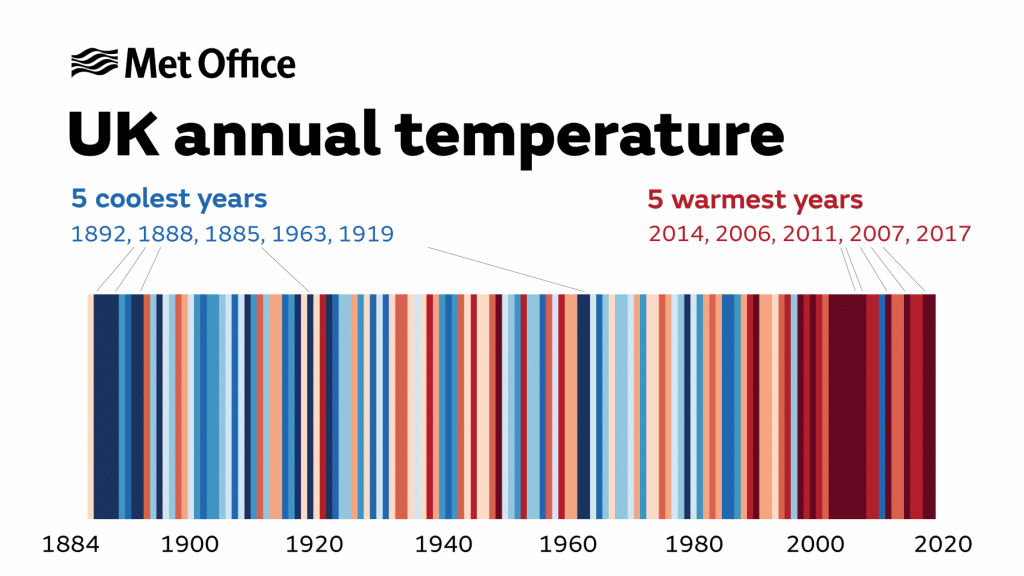What is climate change?
Climate change refers to long-term shifts in the Earth’s temperatures and weather patterns.
There are many natural factors that affect the climate, such as changes in the sun’s activity or large volcanic eruptions, however, scientists agree that human activity is the dominant cause of the climate change we are seeing now.
Human activities such as burning fossil fuels (coal, oil, and natural gas), using intensive farming techniques, and destroying large areas of forest are causing a rapid rise in heat-trapping gases called greenhouse gasses (GHG’s), such as carbon dioxide (CO2), in the atmosphere.
GHG’s act like a blanket wrapped around the Earth, trapping the sun’s heat and raising temperatures. The Earth is now warming faster than at any time in at least the last two thousand years, affecting global weather patterns and sea levels.
You might increasingly see terms such as 'Climate Crisis', ‘Climate and Ecological Crisis’, or 'Climate Emergency' used by campaigners when referring to climate change, this is to better reflect the urgency of the situation and actions needed.
If you want to learn more about the science behind climate change, these links are good place to start:
Why does climate change matter?
Climate change will mean significant changes to the way we live.
The earth is already approximately 1.1°C hotter now than it was in the late 1800s (before the industrial revolution).

This image shows that the five warmest years have all occurred since 2006. Cooler years are blue, while warmer years are red.
While it may seem slow from a human perspective, the climate is responding and will continue to respond for many years to come. As well as rising sea levels, we can expect to see more extreme weather events such as intense droughts, catastrophic storms, gales, floods, and heatwaves.
This may affect us directly by damaging our homes or affecting our health, but it will also mean loss of crops globally and reduction in food supply, damage to the natural world and ecosystems, and increase political uncertainty around the world.
By making changes in our everyday lives, we can help prevent the situation from getting any worse and manage the effects that have already begun.
The Met Office have provided a short summary of the expected effects of climate change and you can explore more about of how the changing climate will impact the world around us here: A Degree of Concern: Why Global Temperatures Matter (nasa.gov).
How will climate change affect East Staffordshire?
The effects of climate change means that in East Staffordshire we will experience warmer and wetter winters, hotter and drier summers, and more frequent and intense weather extremes, such as flooding and heatwaves.
We are already seeing the consequences of this locally, for example, Storm Dennis brought extensive flooding to the local area back in 2020, and the extreme heatwave that hit the area in June 2022.
It is important to plan now to limit the risks and maximise any opportunities these changes may bring. East Staffordshire Borough Council has started to consider how our services and residents may be affected in the future through adaptation measures outlined in our ESBC Climate Change and Nature Strategy and in partnership with Staffordshire County Council: Staffordshire Adaptation Strategy.
You can find out more about climate change our area with this climate change visualisation tool: What will climate change look like in your area? - BBC News.
What does it mean to declare a 'Climate Emergency'?
Declaring a Climate Emergency makes it a requirement to take immediate action to drastically reduce carbon emissions. This means the Council is now accountable for delivering the requirements of its Climate Emergency Declaration.
The commitments of our declaration are as follows:
“To make the Council’s activities carbon neutral by 2040 and aspire to make the Borough carbon neutral by 2050”
We are responding to this challenge by working in collaboration with partners and other local councils to address climate change with four key aims:
- Aim 1 - Protect climate from man-made climate change
- Aim 2 - Adapt to the consequences of climate change
- Aim 3 - Protect and enhance nature
- Aim 4 - Use resources wisely and minimise waste and pollution
What is Carbon Neutral?
The term carbon neutral refers to the balancing out carbon dioxide released into the atmosphere (for example from activities such as burning fossil fuels) with the amount absorbed (for example through planting trees) or removed from the atmosphere. The result being no overall carbon dioxide is added to the atmosphere.
Another term often used is net-zero which goes further than carbon neutral in the sense that it accounts for the balancing out of all greenhouse gases, rather than just carbon dioxide emissions.
The UK Government has a target for the UK to become net zero by 2050.
